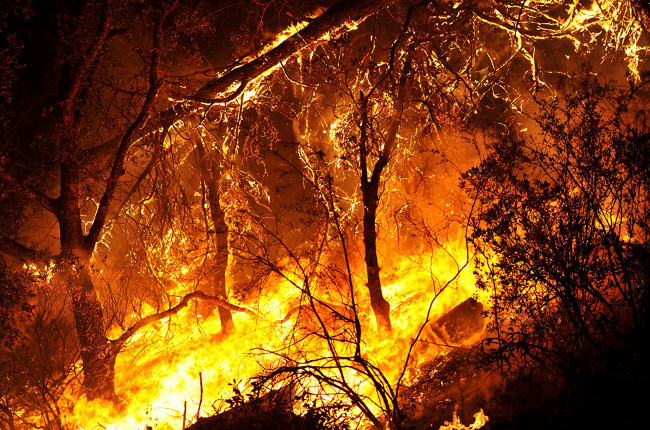Interesting finding: Forest trees have thicker shells where fire often occurs
A new finding shows that the evolutionary adaptation between forest trees and natural hazards is a truly miraculous story.
A new study shows that forest trees often have thicker bark in areas where forest fires are often available to help them survive rather than trees that live in wet areas, tropical rain forests .
' We found evidence of a large number of forest trees all over the regions and continents in living areas, and in flammable forests, the vegetation populations here have very large crust. thick '- Adam Pellegrini, a researcher at Stanford University said in a statement.

To reach this conclusion, the team of scientists examined the thickness of 572 tree species in different forests, including forests capable of self-healing after the fire .
The results showed that in forests with frequent fires, wildfires, and severe droughts, plant populations in this environment developed a thicker crust than those that lived in wet areas. Not only is it thick, it also has high elasticity, improves heat resistance, water retention, helps to survive and recover through forest fires. Obviously, the trees in this forest have adapted to evolve very clearly.

In addition, the research team also pointed out that the thickness of the bark of trees living in the forest often burn depends on the frequency and frequency of frequent forest fires.
This is a new evidence that the flora system on Earth has been making great strides, the culmination of evolution to cope and survive with climate change as the environmental accidents happen. out increasingly fierce.
This research has just been published in Ecology Letters.
You should read it
- ★ Will disaster happen when the leaves in Chernobyl area do not decompose?
- ★ Scientists use AI to predict large-scale wildfires
- ★ Want to escape when the fire needs to remember 10 things clearly
- ★ Make fire letters, fire letters on the website
- ★ Is the Antarctic once covered by lush subtropical forests?